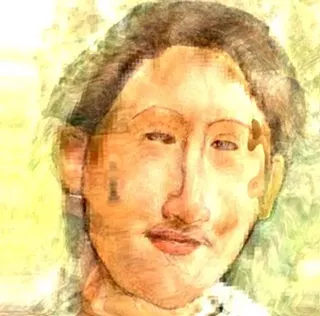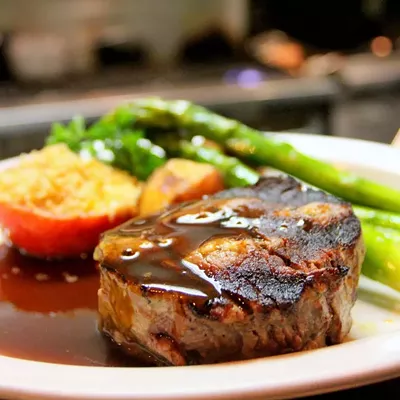Well, for starters, it's the two actresses who play all those characters in the current Wilde Playhouse production. Linda Andresano and Lisa Mae Roether flip from pre-teen girls to old ladies, women to men, pseudo-Shakespearean recitation to Texas bar talk. Each character is keenly individualized, even as each actress takes her own, individual approach to characterization: Roether, thin and beaming, generally seems more spontaneous and gregarious, while Andresano, heavy and rather guarded, more often than not has her characters looking inward. The two play off each other remarkably well, with excellent comic timing and a real sense of joy in each other's company.
And that brings us a bit closer to figuring out what holds Parallel Lives together. Most of these funny little stories, one way or another, are about how people with too little in common manage to come to terms with each other, and the rest of the world.
The play was written and first performed around 1986 by Kathy Najimy and Mo Gaffney, and they apparently relinquished it to other actresses only when they realized that some of their once-topical skits were beginning to lose their edge. One of the best bits in the play is a monolog by an elderly woman (Andresano) telling of how she learned her beloved nephew was gay. Today, that doesn't seem like such a big deal, yet it's handled lightly enough by the writers, not to mention Andresano, that it remains both funny and touching.
"I got used to the microwave oven," the woman declares. "I can get used to you being a gay person."
In another scene, "Kris and Jeff," two frivolous, not particularly intelligent college freshmen stop for a bite to eat after a movie. Jeff (Andresano), a macho and not particularly articulate frat boy, pulls up to a Denny's he knows from experience to be patronized by gays and cross-dressers. He isn't there to cause trouble, just to get a hamburger. Kris (Roether) titters with embarrassment and gawks at the odd characters around her, but in the end, both of them prove--in a very low-key way--to be perfectly decent people.
Male-female dynamics and gender-role confusion propel several of the skits. In one, Hank (Roether) and Karen Sue (Andresano) undertake what seems to be a nightly ritual at a broken-down honky tonk; the drunken Hank, brandishing an extremely limited repertory of seductive lines, urges Karen Sue to marry him (even though he's already married) and stop carrying on with her no-good boss, but, as always, they stagger home separately.
The opening scene finds all humanity being set up for conflict by the choices of two enthusiastic and well-meaning angels. They award women the joy of childbirth, but make it a painful procedure to keep men from getting jealous. And in choosing a color scheme for the various races, the angels include white, even though they suspect the white folks will feel inferior to people of more interesting color.
There's a hilarious, if necessarily mildly crude, sketch speculating that menstruation would be a source of macho pride if it happened to men, and a send-up of feminist performance art featuring lines like, "O, golden labia, let your champagne flow!"
Some scenes are quieter, though still quite funny, such as a conversation between two adult sisters who finally realize they have absolutely no interests in common.
Thanks to Andresano and Roether's rapport and Dana Cianciotto's crisp but never rushed staging, the play and its players maintain an excellent rhythm throughout the evening, except for a few transitions within scenes when the actresses reposition themselves during a blackout. When the lights go out, the skit seems to be over, and it's a little disorienting to pick up with the same characters a moment later. Absolute realism is not a priority here, given the minimal use of scenery and props, so it might have been better to make the transitions with the lights still up.
Similarly, Andresano and Roether are good enough that they could carry the evening without recourse to costume changes between scenes. Just adding an accessory or two (angel wings, cowboy hat) to their basic black outfits would have been enough to establish new characters; the actresses could easily do the rest. They're living proof that one of the angel characters is right when, granting humans free will, she says, "You can do anything you want, as long as you get up and do it."











